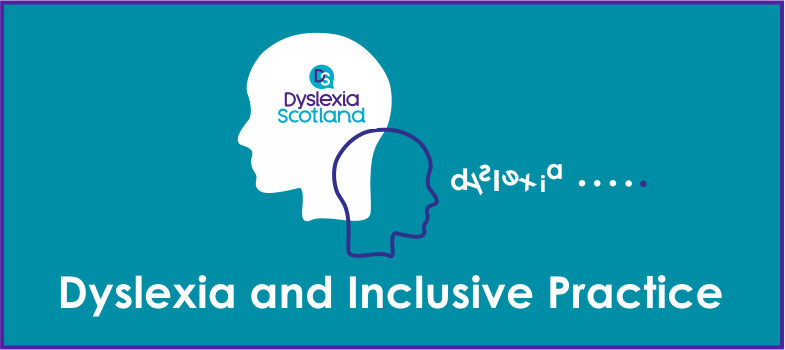2.3 Identification
Module 1 section 2.2 Recap
Within the inclusive ‘needs-led’ Scottish educational context - the ‘label’ of dyslexia is not in itself required in order for resources or support to be made available for learners; however, it is equally important to understand that the label of dyslexia can be very valuable to the learner and their family in terms of the learner’s sense of self and gaining understanding from others.
Everyone has the skills and abilities to recognise early signs of dyslexia in children at all stages, and take appropriate action in response. Pupil support begins with the class teachers, however this does not mean that class teachers are responsible for the formal identification of dyslexia. It means they play an important role in the initial stages and the continuing monitoring and assessment of learning – as they do for all their pupils.
It is the responsibility of all who work with children to respond appropriately to their needs. Recognising early signs of difficulties and adapting learning and teaching approaches are a regular part of the daily routine for teachers supporting all children in an education environment. For those learners who may have additional learning needs such as those arising from dyslexia, it is important that these needs are met in the best possible way by accurate and timely identification. Parents, carers and children over 12 years old have the legal right to request an assessment and this should be started within 6 weeks of the request.
The Scottish education and equality legislative framework ensures that support provided for children and young people who require it, is “needs” based and not provided on the pre-requisite of a label of identification of dyslexia being made for the child or young person.
Many learners describe important social and emotional benefits from having their learning differences recognised. The identification process should be based on robust evidence from a wide range of resources. However, an identification of dyslexia does not necessarily mean that a learner’s needs have been identified and addressed. Appropriate assessment, using the principles of Assessment is for Learning information (AifL), “ensures pupils, parents, teachers and other professionals have the feedback they need about pupils’ learning and development needs” (AifL - Assessment is for Learning information sheet).
www.gov.scot/ Publications/ 2005/ 09/ 20105413/ 54156 [Tip: hold Ctrl and click a link to open it in a new tab. (Hide tip)]
2.2.1 Assessment arrangements
